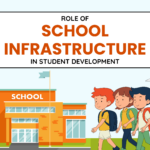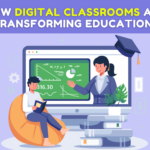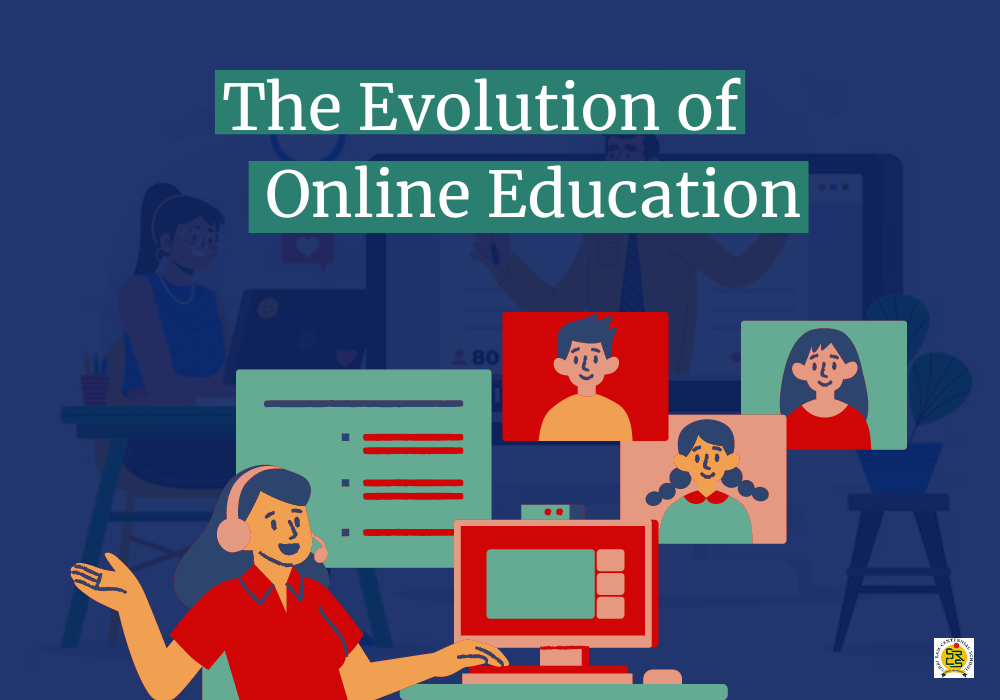The landscape of education has undergone a significant transformation with the advent of online learning. This shift has revolutionized the way students acquire knowledge, skills, and certifications, offering unparalleled flexibility, accessibility, and convenience.
Schools in Dehradun are embracing this evolution, integrating online education to prepare students for the challenges and opportunities of the future. As we explore the evolution of online education, it’s clear that it plays a vital role in shaping the next generation.
The History of Online Education

Online education’s journey began in the 1960s, rooted in early experiments with computer-based learning. However, it wasn’t until the 1980s that the first true online courses began to emerge.
These early courses were limited in scope, primarily consisting of text-based content and email exchanges. The 1990s, however, marked a pivotal moment as the widespread adoption of the internet and digital technologies gave online education the momentum it needed to expand rapidly.
During this period, educational institutions started to see the potential of online learning, and the first fully online degree programs were introduced. As the technology improved, so did the quality and variety of courses available online.
By the 2000s, online education had become a mainstream option, with millions of students worldwide choosing to study online, from short courses to full-fledged degrees.
The Advantages of Online Education

Today, online education offers numerous benefits that have contributed to its widespread popularity. Some of the key advantages include:
Flexibility and Convenience: One of the most significant benefits of online education is the flexibility it offers. Students can access courses at any time and from any location, allowing them to balance their studies with work, family, or other commitments.
This flexibility is especially valuable for non-traditional students, such as working adults or parents, who may not have the time or resources to attend traditional classes.
Accessibility and Reach: Online education breaks down geographical barriers, providing access to educational opportunities for students around the globe. Whether in a remote village or a bustling city, anyone with an internet connection can enroll in online courses from prestigious institutions, opening up a world of learning possibilities.
Personalized Learning Experiences: Online platforms often offer personalized learning paths, allowing students to choose courses that align with their interests and career goals. This tailored approach ensures that learners can focus on subjects that matter most to them, making education more relevant and engaging.
Self-Paced Learning: Unlike traditional classroom settings, online education allows students to learn at their own pace. This self-paced nature is beneficial for students who may need more time to grasp complex concepts or those who prefer to accelerate their learning process.
It enables a more individualized approach to education, catering to different learning styles and needs.
Cost-Effectiveness: Online education is often more affordable than traditional in-person education. With no need for physical infrastructure or commuting expenses, students can save on tuition and associated costs.
Additionally, many online courses offer free or low-cost options, making education more accessible to a broader audience.
Preparing Students for the Future
The skills required for success are evolving as the world becomes increasingly digital. Online education is uniquely positioned to prepare students for the future by equipping them with the tools they need to thrive in a rapidly changing environment. Here’s how:
Developing Digital Literacy and Skills: Online education inherently involves the use of technology, helping students become proficient in digital tools and platforms. These digital literacy skills are essential in today’s workforce, where technology plays a central role in almost every industry.
Fostering Critical Thinking and Problem-Solving: Online courses often require students to take a more active role in their learning. This approach encourages critical thinking and problem-solving, as students must navigate the material independently, seek out resources, and apply their knowledge to real-world scenarios.
Encouraging Collaboration and Communication: Many online courses incorporate group projects, discussion forums, and peer reviews, fostering collaboration and communication skills. These experiences prepare students to work effectively in team environments, a key requirement in many careers.
Providing Access to Global Resources and Networks: Online education connects students with a global network of peers, instructors, and professionals. This access to diverse perspectives and resources enriches the learning experience and prepares students for a globalized workforce where cross-cultural communication and collaboration are increasingly important.
Preparing Students for the Gig Economy and Remote Work: As the gig economy and remote work continue to grow, online education prepares students for these trends by emphasizing self-directed learning, time management, and the ability to work independently.
These skills are crucial for success in an economy where traditional job structures are being replaced by more flexible, project-based work.
The Future of Online Education
The future of online education holds much promise, with emerging trends and technologies poised to further transform the way we learn. Some of the exciting developments on the horizon include:
Artificial Intelligence and Machine Learning: AI and machine learning have the potential to revolutionize online education by providing personalized learning experiences tailored to individual student needs. These technologies can analyze student data to offer customized feedback, recommend resources, and even predict learning outcomes.
Virtual and Augmented Reality: VR and AR technologies are making it possible to create immersive learning environments that simulate real-world scenarios. These tools can enhance online education by providing hands-on experiences in a virtual setting, from medical simulations to historical re-enactments.
Gamification and Interactive Learning: Gamification, the application of game-design elements in non-game contexts, is gaining traction in online education. By incorporating interactive and game-like elements, such as quizzes, challenges, and leaderboards, online courses can increase student engagement and motivation.
Microlearning and Bite-Sized Content: Microlearning, which involves delivering content in small, manageable chunks, is becoming increasingly popular in online education. This approach caters to the busy schedules of modern learners, allowing them to absorb information in short, focused sessions that fit into their daily lives.
Blockchain and Secure Credentialing: Blockchain technology is being explored as a way to securely store and verify academic credentials. This could revolutionize how degrees and certifications are issued and recognized, making it easier for students to showcase their qualifications to potential employers.
Conclusion
Online education has come a long way since its inception, evolving into a robust and dynamic system that prepares students for the challenges of the 21st century. As technology advances, online education will remain at the forefront of innovation, providing students with the skills, knowledge, and adaptability needed to succeed in an ever-changing world.
In a world where the ability to learn and adapt is more important than ever, online education offers a pathway to success for students and parents alike.
By embracing the opportunities presented by online learning, students can equip themselves with the tools they need to navigate the future with confidence and competence. The evolution of online education is not just about keeping up with the times—it’s about preparing for what’s to come.










